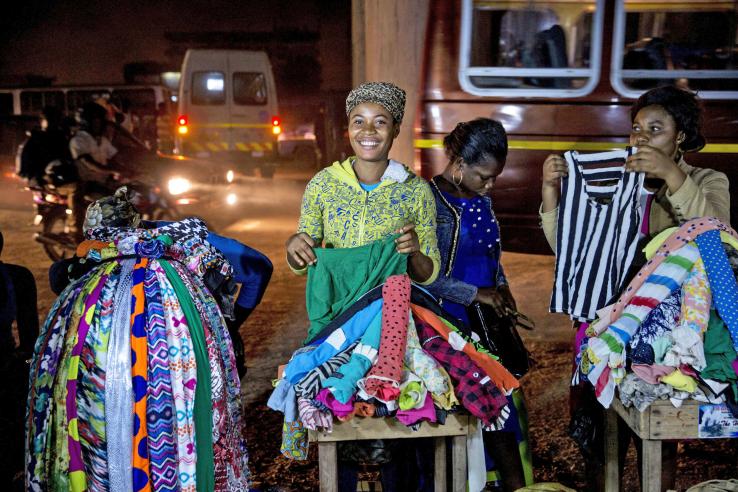Announcing the J-PAL Jobs and Opportunity Initiative

More than 188 million people were unemployed globally in 2019. High unemployment is particularly challenging in low-income settings, where there are often few jobs to begin with. Despite the wide array of policies and programs designed to address these challenges, many questions remain unanswered to guide policymakers toward the most effective solutions.
Certain subsets of the population are especially vulnerable to unemployment. For example, youth have an unemployment rate around three times higher than that of adults, totaling an estimated 70.9 million unemployed youth in 2017.
And just because someone has a job, that doesn’t guarantee them a decent livelihood to maintain their family. In low- and middle-income countries, over 25 percent of people who have jobs still live in extreme or moderate poverty. Many workers remain trapped in low-quality jobs with low pay, unsafe conditions, and no benefits.
Existing research suggests several key drivers behind these employment challenges, including job search and matching frictions and economies that do not create enough quality jobs. Randomized evaluations can help us identify practical solutions to these challenges.
J-PAL’s Jobs and Opportunity Initiative
J-PAL’s new Jobs and Opportunity Initiative was created with support from Google.org to answer some of the most pressing questions facing policymakers, employers, and job seekers: For example, how can we help job-seekers gain marketable skills, and find jobs that are the best fit for them? How can we best prepare workers for the changing demands of the labor market and leverage technology to improve their employment prospects? How can we support entrepreneurs to help them grow their businesses and employ other people who need work?
The Jobs and Opportunity Initiative funds innovative randomized evaluations that tackle these questions and many more. The initiative is led by labor economists and J-PAL affiliates Marianne Bertrand (University of Chicago) and Bruno Crepon (ENSAE and École Polytechnique). It focuses on three key thematic areas: job training and matching, job creation, and the future of jobs.
The initiative doesn’t stop at funding research. We will also synthesize key lessons we are learning from the research, and work to get that research into the hands of policymakers who can use it as an input as they’re making difficult decisions about how to design their employment policies.
Google.org’s anchoring investment of $4M in this initiative focuses in sub-Saharan Africa, with some funding flexible for evaluations in other low- and middle-income countries. Through this effort, Google.org seeks to strengthen the innovation and learning ecosystem in sub-Saharan Africa through rigorous research partnerships. Especially as we consider sub-Saharan African economies in light of COVID-19, we hope to deepen partnerships across the public sector, private industry, civil society, and philanthropy to tackle critical labor market challenges together.
Rapidly responding to job implications of the COVID-19 pandemic
COVID-19 has disrupted and altered labor markets across the globe. Through the Jobs and Opportunity Initiative, we are supporting urgent research that helps us understand how vulnerable workers around the world are being impacted by COVID-19, and how to design effective policy responses to protect these workers.
For example, in Dandora, Kenya, a dense urban slum outside of Nairobi, many people lack the savings to sustain them for weeks or months without working. Researchers are testing the effectiveness of delivering cash grants to female microenterprise owners during the COVID-19 outbreak. In addition to measuring the impact of these cash grants on economic outcomes before and after the crisis, they will collect information about the impact of potential government policy responses on these microenterprises.
And with millions of migrants returning from cities to rural villages across India in the wake of COVID-19 outbreak and a nationwide shutdown, this JOI project works with a state government’s COVID-19 Response Team to support a rapid policy response. Specifically, they will conduct high-frequency surveys of return migrants in rural villages to better understand the challenges they face. They will be regularly providing key insights to the government partners to inform their COVID-19 response.
Looking forward
Already, the Jobs and Opportunity Initiative has received dozens of high-quality proposals. This signals to us the extent of excitement from implementers and researchers to rigorously evaluate innovations in the jobs and opportunity space.
There are still a lot of unknowns around the pandemic's long term impacts. However, what’s clear is that effective solutions that support people to access good jobs will be critical. We are excited to support rigorous research that can help inform these solutions.
For more information, visit www.povertyactionlab.org/JOI.



